Art has always been a dynamic mode of self-expression, and innovative visual artists test the limits of convention to represent and reflect new layers of narrative, movement, and identity. These artists are working in a variety of mediums, textile-based sculptures, digital animations, performance art, and immersive experiential installations. Their work addresses broader social and historical themes and not just personal narratives. Here are 15 creative visual artists whose work is as provocative as it is inventive.
Creative Visual Artists You Must See
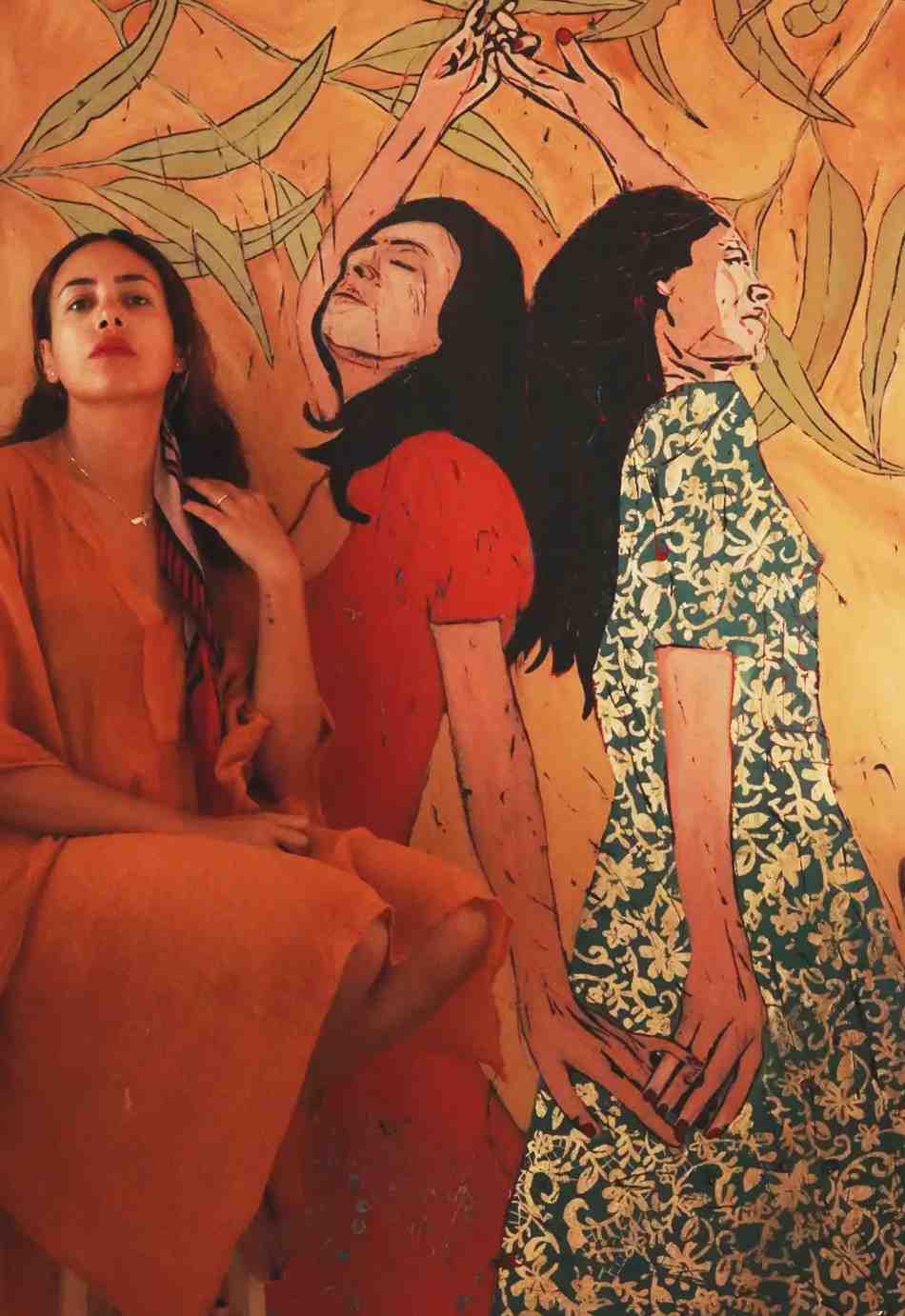
Rasha Amin
Amin’s overriding arc, then, is one of resilience, empowerment, and the complexities of womanhood in her society. Her work connects personal stories, struggles, and triumphs into a narrative she hopes will transcend cultures. With her work, Amin aims to create empathy and understanding, encouraging people to explore life and interact through different lenses, and to have conversations that know no limits.
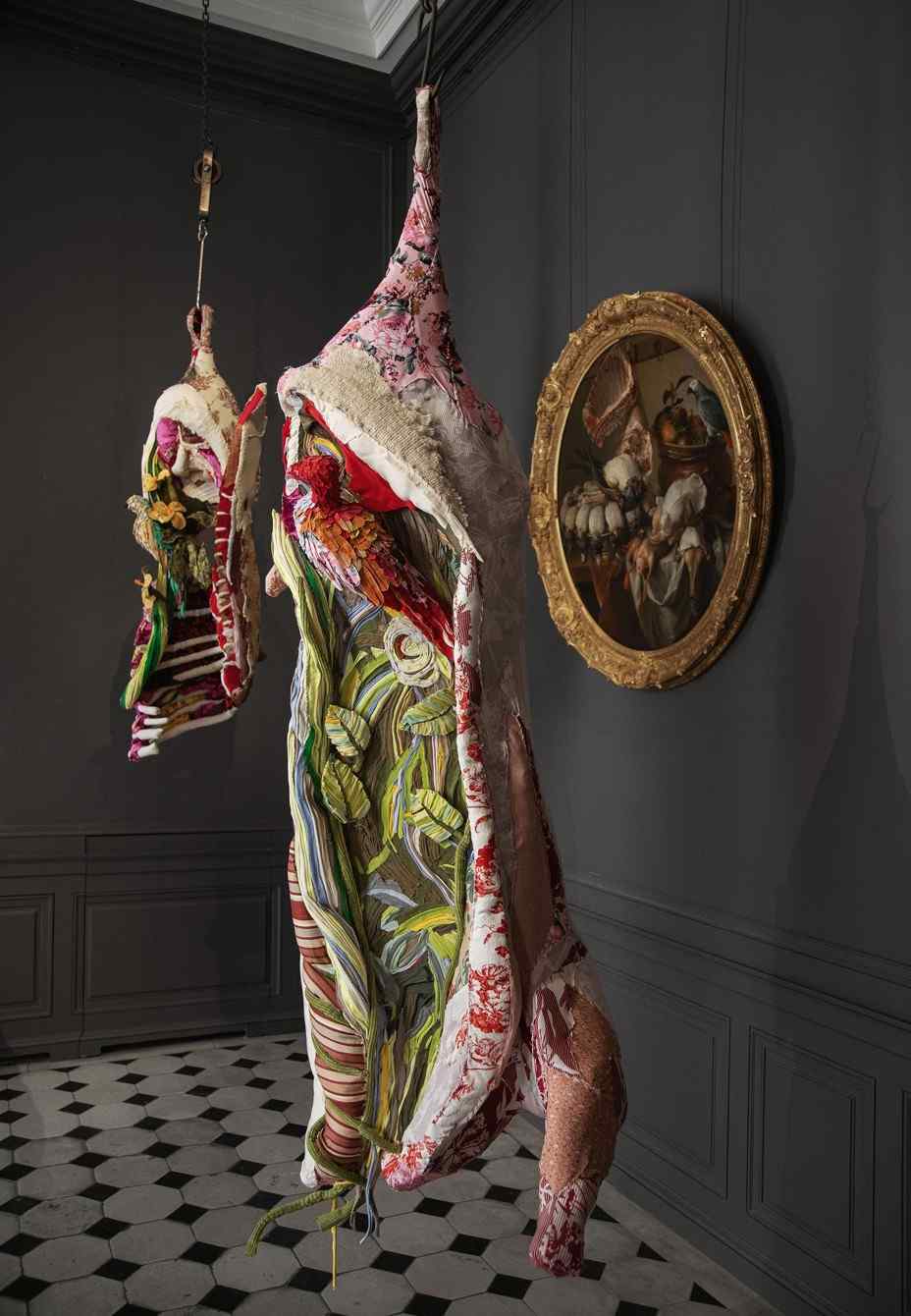
Tamara Kostianovsky
Tamara Kostianovsky, an Argentine-American artist, mines the themes of the environment, consumer culture, and violence in her work, using castoff clothing to create visceral, multilayered sculptures and installations. Adapting models of Art History, as well as memories of butchered meat she witnessed while living in Argentina and the mechanized systems of consumption that currently reign over the fabrication of goods in the United States, her work proposes a type of beauty that reacts to our corporeal realities to the contemporary systems of industrialization that consume them.
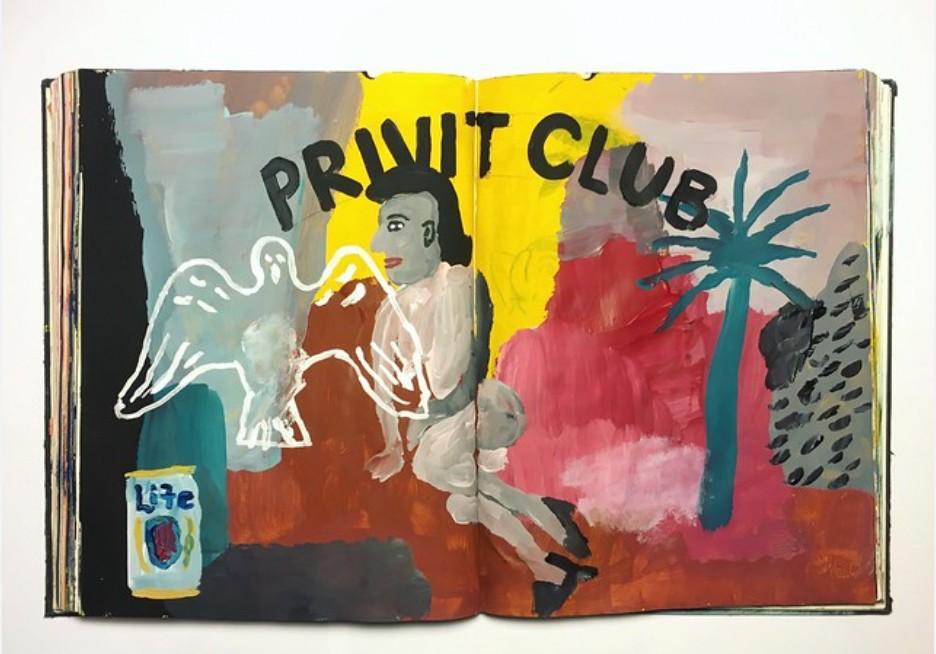
Erik Winkowski
Erik Winkowski treats mixed-media imagery like an orchestration. His broad output of animations and digital experiments referencing play, openhearted experimentation, the history of art and daily living employs vintage footage, paper cutouts, photography, drawings, and paintings. His pioneering animation methods give his videos the spontaneity and vitality of painting — and this experimental spirit is in evidence in his collaborations with Prada, Gucci, Hermès, and The New York Times.
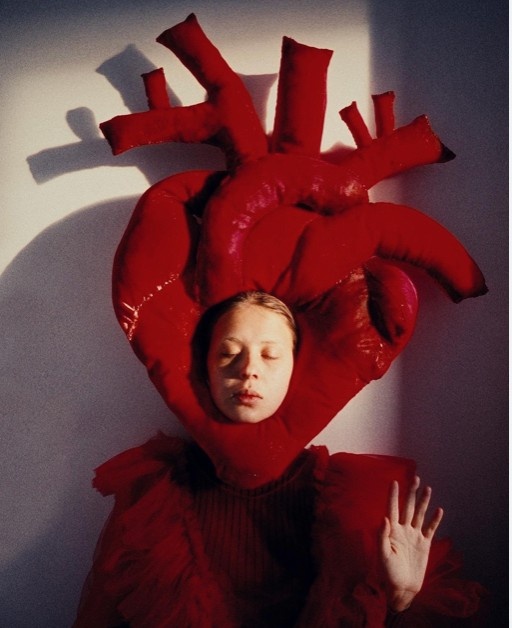
Polina Osipova
Polina’s practice engages Indigenous Chuvash myths and legends at the intersection of craft and computational technologies. She invokes, looks back, and learns from the experience of her female ancestors, through textiles and archival family photographs to investigate the threads among past and future – temporal and timeless, opening doors into them from the digital or analog present. The recurring symbols or snaps in the work give the impression of untold stories concealed in the family chronicles. Her primary medium of practice is wearable sculpture, textile sculpture, performance, and photography – and it all ties together.
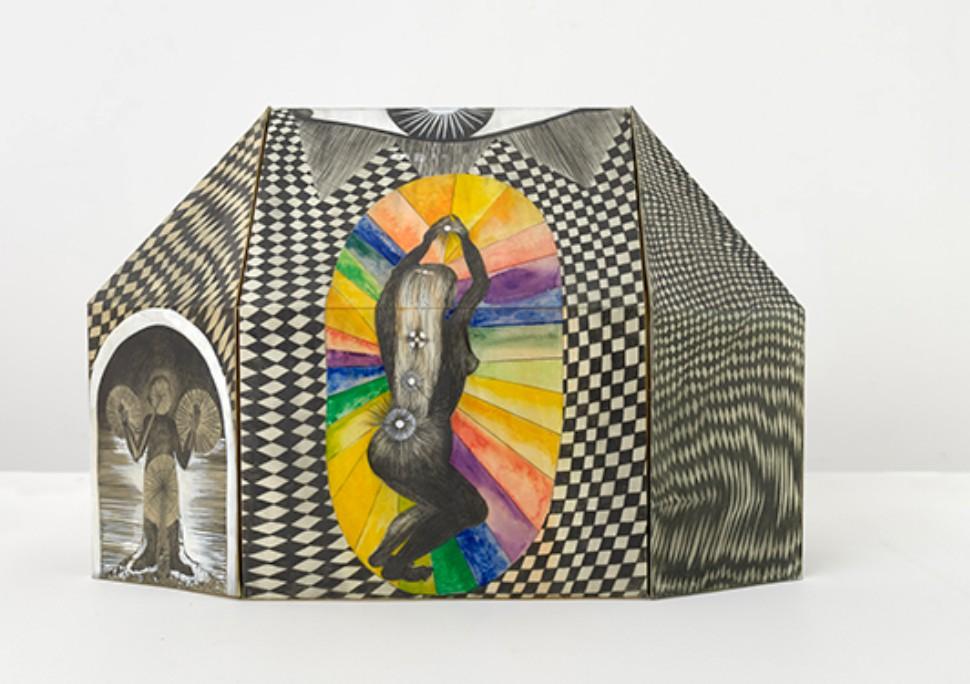
Sandra Vásquez de la Horra
Vasquez de la Horra is a Chilean draftswoman and video artist. The wax-dipped pencil line work of Vasquez de la Horra is personal, yet universal. Her work covers such broad themes as Chile’s history (her homeland), religion, sex, myths, social realities, folklore, and death; some of these are recurring throughout her practice. The audience is pulled inside her world of grotesque monsters possessed by sexual and psychological worries.
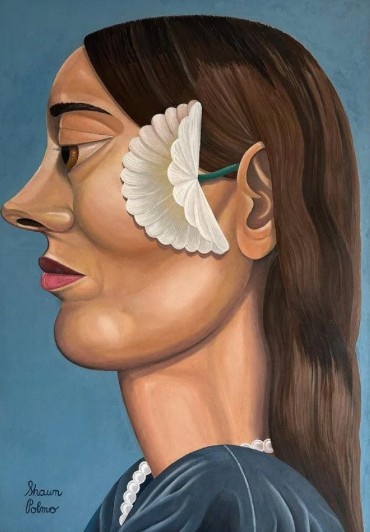
Shawn Polmo
His subject has been mostly the human figure, a vehicle for interpreting and interrogating the world, his interior world, and the complex contradictions of modern identity. his work is influenced by many things, but ancient art (and architecture) has taken on a special meaning in his work over the last several years. He accentuates features to convey importance and to produce otherworldly portraits.
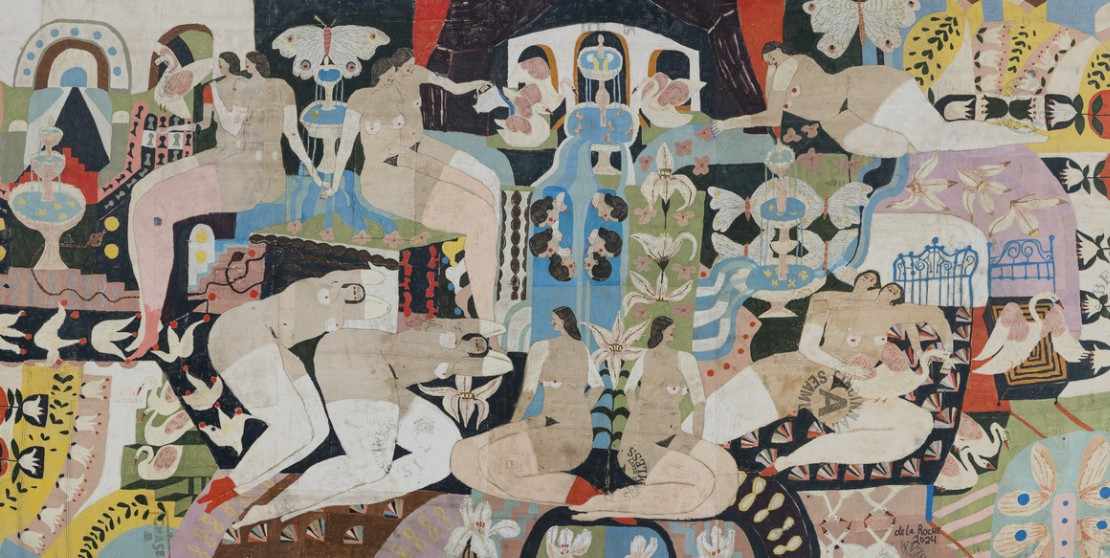
Lauren Dela Roche
Lauren Dela Roche is a queer punk feminist artist who is self-taught and incorporates a wide range of references from zines to various European modernisms to autobiography. Ms. Ren is primarily a self-taught artist, but her consumption of visual culture and art history provides her with long backdrops to draw on, to splice together Egon Schiele’s line drawing style with that of transgressive cinema, the Persian miniature and Greek mythology and folklore into her own instantly recognizable, fresh work.
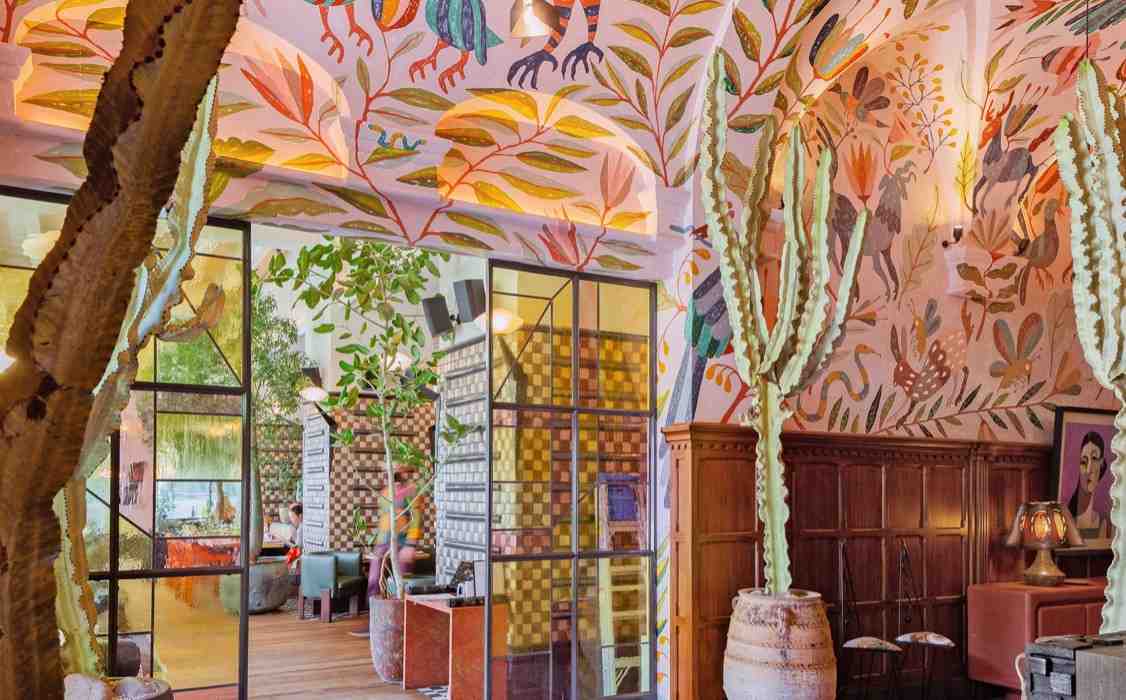
Abel Macias
Abel Macias is a painter, illustrator, builder, art director, and visual thinker. He lives and works in Los Angeles, California, after 15 years of living and working in New York, New York. With a talent for transforming everyday materials and objects, he crafts whimsical, playful interiors, illustrations, and art objects. Macias’s art is heavily inspired by Mexican folk art and nature, as well as everyday objects, blended into an uplifting clash of color and pattern.
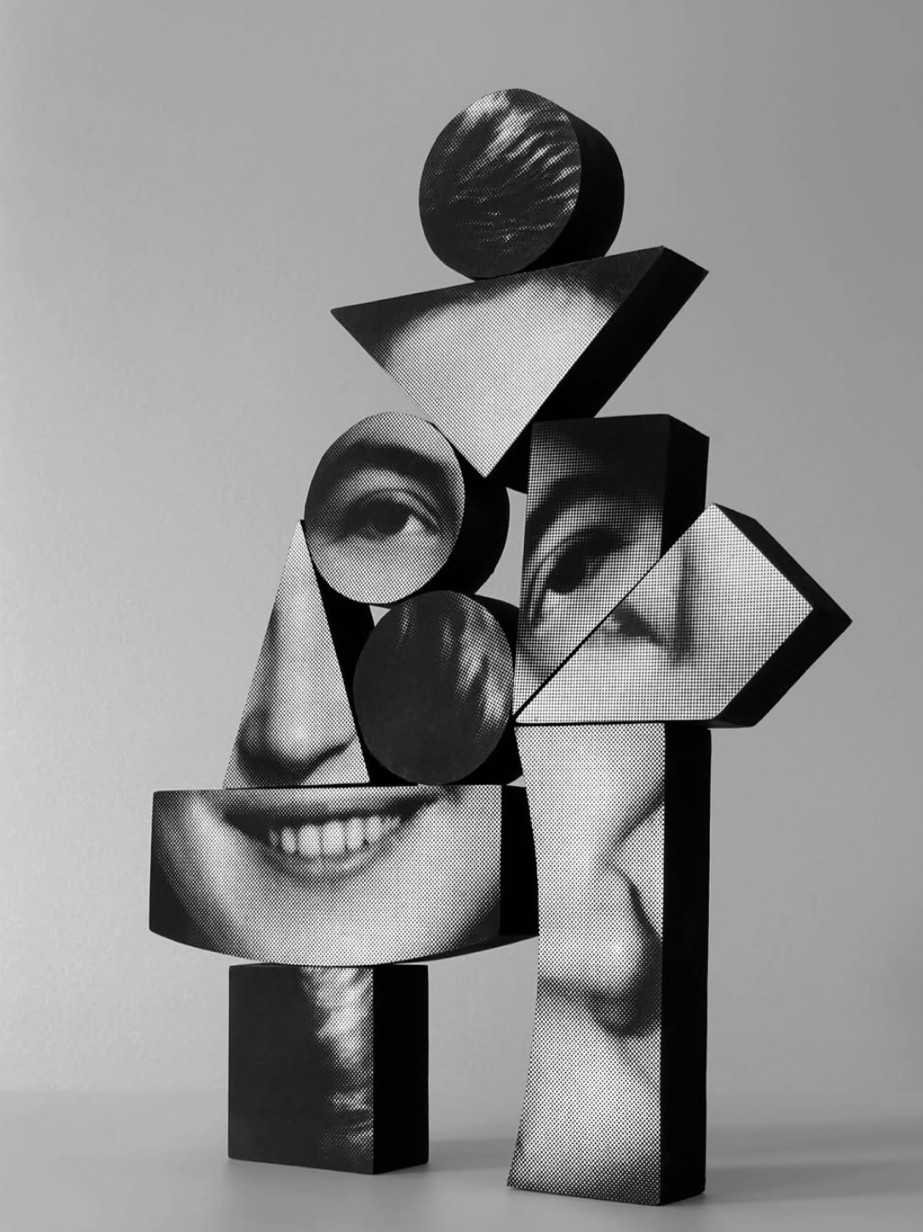
Kensuke Koike
Kensuke Koike provides artwork of course its own making by manipulating found, old-fashioned, photographic material. Kensuke’s approach is ‘no more, no less’ utilising only the elements that are contained in an image to create a modern visual with a new story. For the artist, the process often begins as a puzzle just waiting to be solved, each image posing its own particular challenges. Koike maintains a performative element to his practice through his exhibiting of both the processes of making and the final works, important to know not only to understand the humor with which he creates his vision but also the reverence.
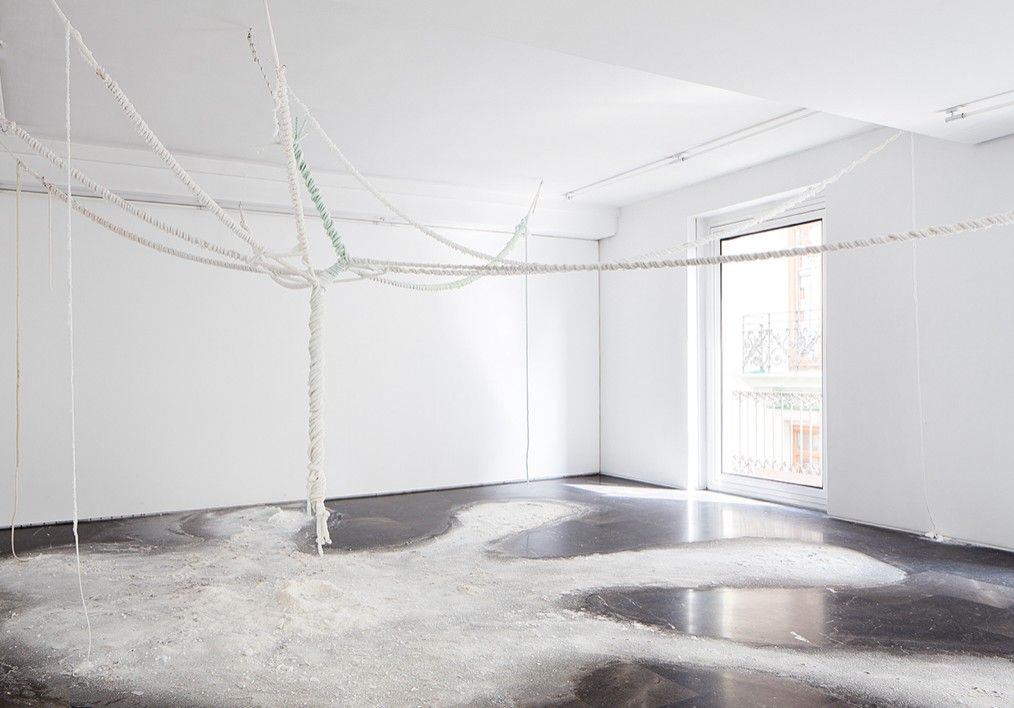
Jorge Peris
Jorge Peris is concerned with making works specific to their site, through which he reflects on the microcosm of relations springing from materials as diverse as bacteria, algae, sand, or salt, all of which create environments whose process ultimately establishes the form of the piece itself. Jorge Peris transmutes the room into a laboratory. Consequently, he has teamed up with biologists, physicists, and even psychologists in the embedding of his research, casting himself in an experimental domain where failure and happenstance accompany the performance of his artistic practice.
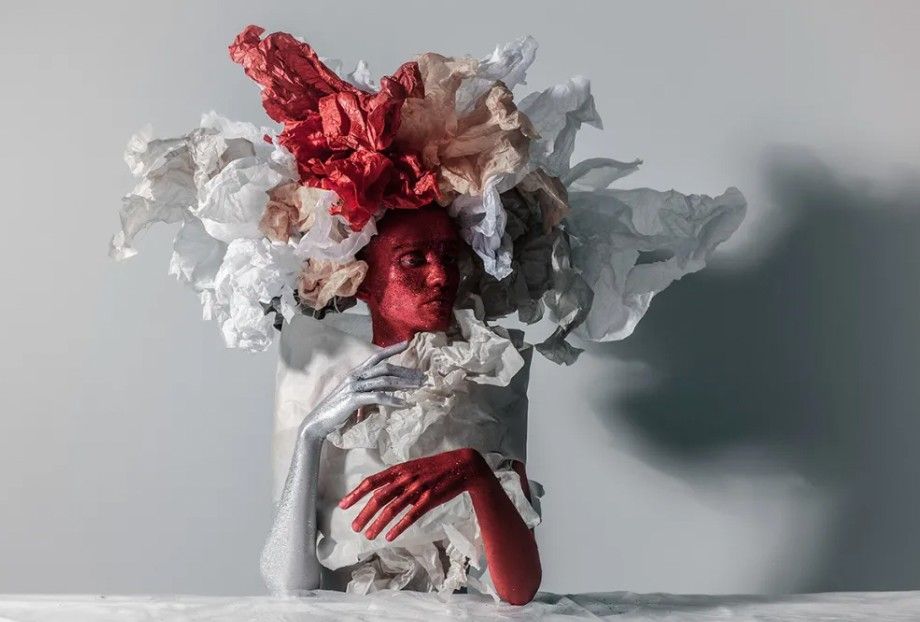
Venera Kazarova
As an artist, Venera Kazarova exists at the intersection of visual and performative art. She was first an educated costume designer. Her artistic process started with playing with materials and forms, and eventually, the process grew way beyond the costumes. Kazarova also finds inspiration in dreams and nature. Her performances tend to be interdisciplinary, merging visual art, contemporary dance, and music. Performative is a key part of her practice because it is in movement and embodiment that her costumes literally emerge. With performers, she crafts a visual theater in which the costume becomes an extension of the performer’s identity, merging art and life. All in all, as a contemporary artist, costume, and performance designer, she seeks to break the boundaries between art fields and construct an immersive experience. With her visual theater, she aims to transport the audience members into another dimension where costumes serve as vessels of expression allowing for communication and connection on a higher level than words alone.
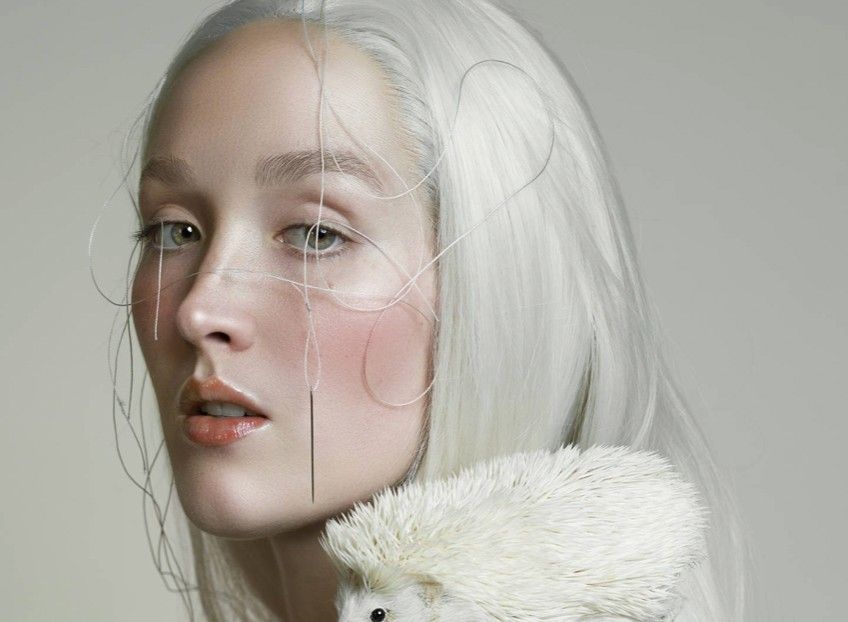
Claire Luxton
Claire Luxton is a British contemporary multi-disciplinary artist who works in photography, immersive installation, and poetry. With work that is a high energy, her dynamic practice addresses the tenuous balance between humanity and nature, sinister undercurrents dance between fabricated femininity and an irresistible fragility, enticing the viewer with colour, intrigue, pleasure, and uncertainty.
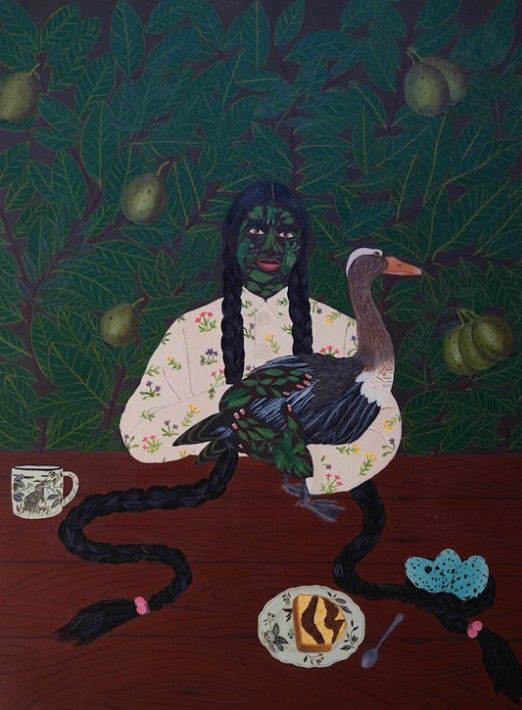
Kelly Sinnapah Mary
Kelly Sinnapah Mary is a multidisciplinary artist whose work responds to the diasporic movement of her genitors. Through unpacking the particulars of her ancestors’ middle passage to Guadeloupe, her practice ruminates on her Indo-Caribbean identity. Through the lens of science fiction, she often navigates the so-called feminine universe; laboring with floral motifs, yielding materials, and fairy tales, deploying techniques that conflict with the trenchant and politically loaded themes she engages. In this friction, Sinnapah Mary traces a lineage of her ethnic heritage while posting herself as someone caught between two nested worlds clutching with concepts of ‘negritude’ and ‘coolitude.’ ‘Coolie’, a term invented by Caribbean poet Khal Torabully, is a derogatory name given to Indians who emigrated to Caribbean islands.
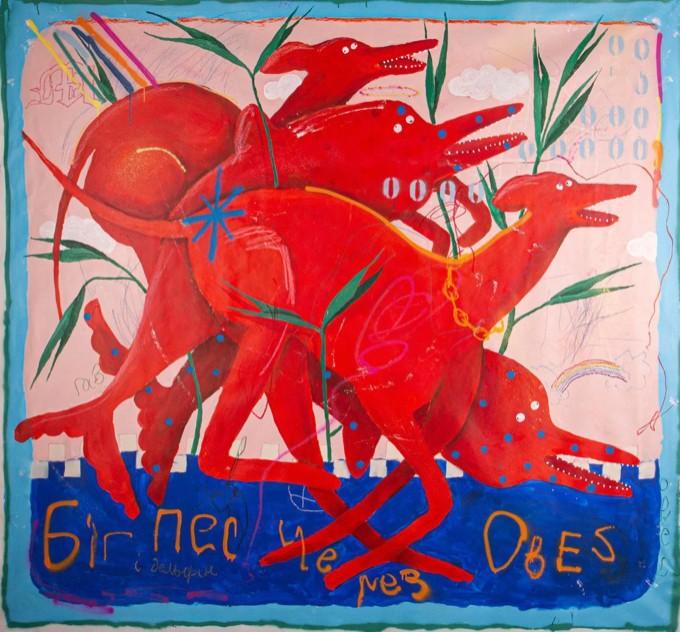
Iryna Maksymova
Iryna Maksymova was born in Kolomyia, Ukraine, in 1991 and works on topics that resonate with her personally. The storylines, color contrasts, and characters of her works appear to be simple, but they concretize the deepest part of her inner feelings. Much of her work features silhouettes of women, who embody both feminine and masculine traits. For the animals that she paints, Maksymova aims to give them a voice, which they do not normally have. Maksymova aims to inspire people and encourage them to contemplate not just the visual, but the idea and the concept behind it that can potentially incite a change through her practice.
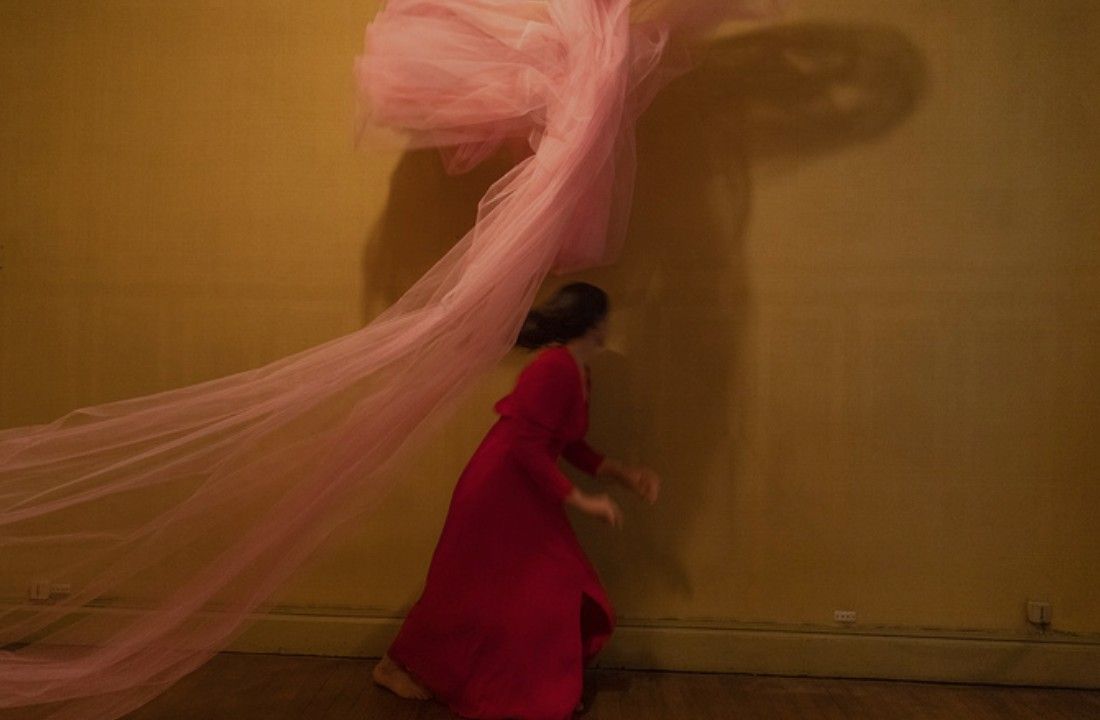
The Heidies
The Heidies are a female duo: Caroline Denervaud performs, Pascaline Dargant photographs. The duo’s artistic partnership blossomed from friendship in 2014. Within a compact frame of time, place and action, the Heidies succeed in articulating more fragile moments of equilibrium, shaping gesture and matter on the fly. Their work always follows the same process: they find a location first, a material to play with, clothing and/or accessories and colors Caroline mixes and wears. No sketch board, no choreography: they don’t predefine anything beyond those basic elements. And then they just go: Caroline is guided by nothing but the moment and her instinct in a constant exchange in which the woman behind the camera, although we never see her face, puts her body into movement, plays, proposes, and the photographer captures, suggests, and reflects. The shooting session is held together by them, both in a sort of creative ping pong, a constant and symbiotic back and forth that has to do all at once with feminine presence, decor, matter and movement.
Conclusion
Their cutting-edge styles and ideas reshape contemporary art. Whether working with textiles or digital media, photography or performance, each artist has a distinct vision that strikes a chord with audiences around the world. Their art provides the viewer with opportunities to view new perspectives, embrace today’s wide-ranging cultural narratives, and relate to art in unconventional ways. We followed these incredible and creative visual artists who will continue to lead the way for the future of visual expression.